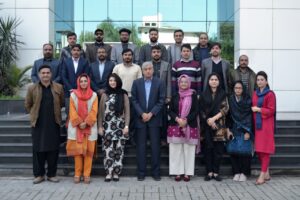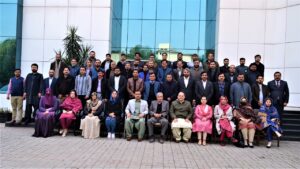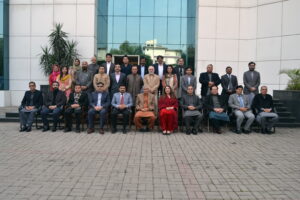
Post Induction Training For Newly Recruited Research Officers (BS-17) of Economist Group & Technical Sections, Ministry of Planning, Development & Special Initiatives
Dated: February 12, 2024 to March 8, 2024 Venue: Pakistan Planning and Management Institute (PPMI) Pakistan Planning & Management Institute (PPMI) has organized “Post Induction


